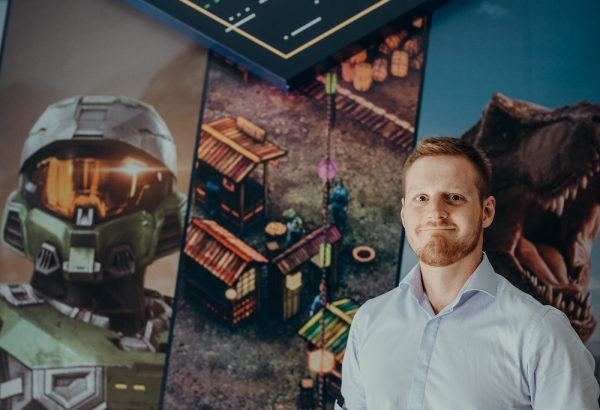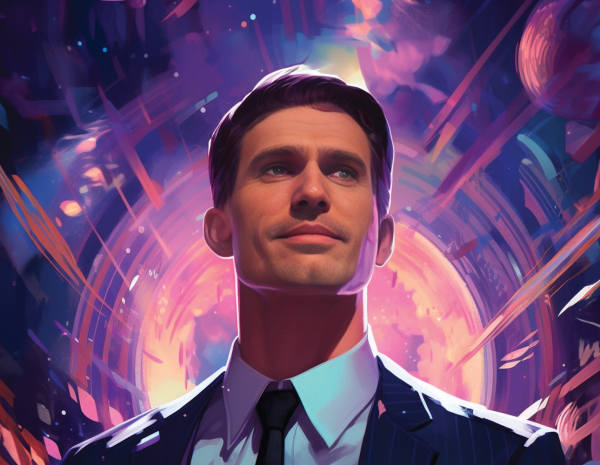In a world where technological advancement shapes every facet of our lives, the concept of the Metaverse has captured the imagination of industries and individuals alike. While some critics have dismissed the Metaverse as a passing trend, the latest developments suggest otherwise. The recent launch of Clockwise‘s first office space in the Metaverse, the Clockwise Campus, exemplifies how this digital frontier is evolving into a significant part of our working and social lives.
Flexible workspaces have become increasingly popular as working patterns shift to accommodate the rapid pace of technological change. This shift has been particularly evident in the aftermath of the global pandemic, which forced businesses to adapt to remote working environments. The flexibility to work from anywhere in the world has been a boon for many, offering unprecedented freedom and autonomy. However, this freedom has also brought challenges, such as the risk of loneliness and the erosion of a sense of community.
Clockwise, a leading provider of flexible workspaces, has responded to these challenges by launching the Clockwise Campus, a virtual office space within the Metaverse. This bold move positions Clockwise at the forefront of a new era in the office industry, where physical and digital spaces converge to offer a hybrid working experience. “We are so excited to finally open the doors of our Clockwise Campus, the first ever workspace in the Metaverse,” said Alexandra Livesey, COO of Clockwise. “The Metaverse has been inspired by our buildings, taking the very best design and experiential elements from across the portfolio.”
The Metaverse: A Fad or the Future?
The launch of the Clockwise Campus raises an important question: is the Metaverse just a passing fad, or is it here to stay? According to Phil Rowley, Head of Futures at Omnicom Media Group UK, the Metaverse has often been misunderstood. “Right from the off, the Metaverse suffered from commentators conflating its constituent parts with the whole; like mistaking the leaf for the branch, the branch for the tree, and the tree for the forest,” he explains.

Rowley argues that while the narrow view of the Metaverse as a virtual reality-led parallel world has not fully materialised, the broader concept of the Metaverse is far from dead. if we broaden the definition of the metaverse to include all gaming – across PCs, consoles, mobiles – then we’re talking about a global audience of around 3 billion, fuelling an industry worth $200 billion. The idea of controlling a digitised character, navigating them through a 3D computerised environment on a 2D screen – that is most definitely NOT a fad. And to prove it, gaming has been around for over 40 years and is now an inextricable part of global culture,” he notes. This perspective suggests that the Metaverse, in various forms, has already become an integral part of global culture and is unlikely to disappear.
The Future of Work in the Metaverse
The integration of the Metaverse into the workplace is not just about creating virtual spaces; it’s about redefining how we work, connect, and collaborate. Conor Hughes, an HR consultant and change manager, believes that dismissing the Metaverse as a trend overlooks its potential. “From an HR perspective, it’s a combination of enhanced VR and AR tech making experiences more accessible and the shift to digital interactions during the pandemic,” Hughes explains. He emphasises that the Metaverse offers real utility in virtual workspaces, learning, and social connections.

Looking ahead, Hughes envisions a future where digital and physical spaces are seamlessly integrated, allowing users to move fluidly between them. “I see HR playing a key role in effectively managing this workforce shift and guiding responsible innovation,” he adds. The possibilities for enhanced training, collaboration, and community building in the Metaverse are exciting, but Hughes cautions that ethical development and inclusive access must be prioritised.
Markus Schaal, Managing Director and COO at PLITCH, echoes this sentiment, highlighting the importance of interoperability, user privacy, and sustainable business models for the long-term success of the Metaverse. “The recent resurgence of interest in the Metaverse is due to a combination of technological advancements and societal changes,” he says. Schaal predicts that the Metaverse will become more integrated into daily life over the next 5-10 years, with practical applications in remote work, education, and healthcare.

As the Clockwise Campus demonstrates, the Metaverse is not just a passing fad; it is a powerful tool that can enhance the way we work, connect, and interact. With the right approach, the Metaverse has the potential to revolutionise industries, foster innovation, and create new opportunities for collaboration and personal growth. As Alexandra Livesey aptly put it, “The launch takes Clockwise into a new age and I can’t wait to see where the Metaverse will take us.”
The Metaverse, in all its forms, is here to stay. Its evolution will be shaped by technological advancements, societal needs, and the willingness of businesses and individuals to embrace new ways of thinking and working. Far from dying, the Metaverse is poised to become an integral part of our digital lives, offering limitless possibilities for the future.
![]()
Vlad Parnov, Global Head of Web3 at Publicis Sapient.

Many critics argue that the Metaverse is just another tech fad. How do you respond to this skepticism? What are the most common misconceptions about the Metaverse?
“While skepticism towards Metaverse technology is understandable, we’ve seen similar attitudes toward most other emerging technologies. The most apparent misconception about the Metaverse is that it’s only for gaming. This misconception is not unjustified, as the majority of successful Metaverse implementations have been built around gaming (using existing platforms such as Fortnite or Roblox).
“However, it’s important to consider the broader potential applications and the right audience for this technology. Without a clear strategy for its utility, any implementation of Metaverse technology may struggle to succeed. Recognizing its potential beyond gaming, such as in education, remote work, and social interaction, can help highlight its long-term value.”
The Metaverse concept has been around for decades. What do you think has kept the idea alive despite the various technological and market challenges it has faced?
“The most apparent reason is the demand for this type of concept. Social media platforms have helped people stay updated with those they are interested in, and the Metaverse takes this interaction to the next level by enabling interactions without boundaries or real-world limitations. Many technological concepts take time to mature, and this is also the case with the Metaverse. As with other technological advances, younger generations are ready to embrace it, so eventually, through iterations and improvements, it should appeal to a much wider audience.”
Why do you think the Metaverse has recently regained popularity? Is it a result of technological advancements, societal changes, or something else?
“Many millennials and members of younger generations have grown up playing video games, particularly multiplayer, interactive games. Having experienced live text chats, voice interactions, and avatar-based communication in those games, many individuals are now looking to engage in similar experiences with their favourite brands and services.
“This desire for immersive and interactive experiences, combined with technological advancements such as improved virtual reality and augmented reality capabilities, has contributed to the Metaverse’s resurgence in popularity. Additionally, societal shifts towards remote work and digital socialization have increased interest in the Metaverse as a space for connection and interaction.”
What technological advancements have been crucial in keeping the Metaverse concept alive and evolving? Are there any upcoming innovations that could further revolutionize this space?
“Continued advancements in networking technologies related to live communications, including voice, video, and virtual production, have played a significant role in keeping the Metaverse concept alive. However, the most important driver has been people’s desire for virtual experiences. The pandemic has been a turning point for many, highlighting the need for technology that can keep everyone connected in meaningful ways and provide virtual experiences that replicate physical encounters—such as concerts, parties, announcement events, conferences, and virtual shopping experiences.
“While some Metaverse activations have shown that users do not always need the highest-fidelity virtual worlds, companies working on improving the building blocks of immersive experience technology will continue to innovate. They will focus on enhancing user engagement, interactivity, and accessibility, likely prioritizing the creation of more intuitive tools and platforms that empower creators and developers to build diverse and inclusive environments for a wider audience.
“Additionally, advancements in AI, machine learning, and haptic feedback may further enhance the overall immersive experience, making it more realistic and personalized for users. The continued evolution and mass adoption of AR/VR headsets will undoubtedly encourage more brands to explore immersive activations.”
How significant is the economic potential of the Metaverse? Do you see it as a sustainable industry or are there risks of another tech bubble?
“I see the Metaverse as a powerful tool for evolving how we engage with brands and services, so I do not view a tech bubble as a threat in this case. Instead, I see brands recognizing the potential to interact with their loyal customers through this additional channel, providing experiences that haven’t been possible without this technology and/or creating new revenue streams through virtual shopping or service experiences. By offering unique, immersive interactions, the Metaverse can enhance brand loyalty and open up innovative business opportunities. Its economic potential lies in its ability to complement existing business models and offer novel ways to connect with consumers.”





